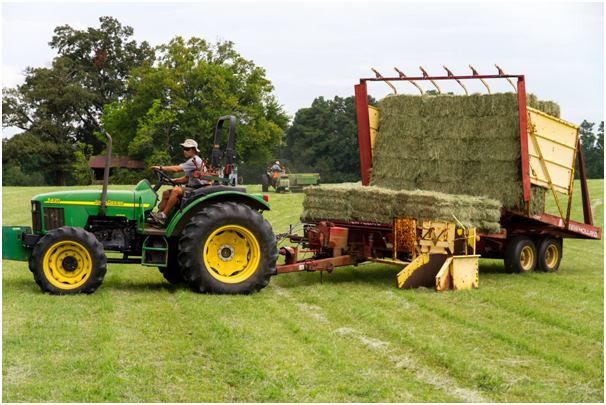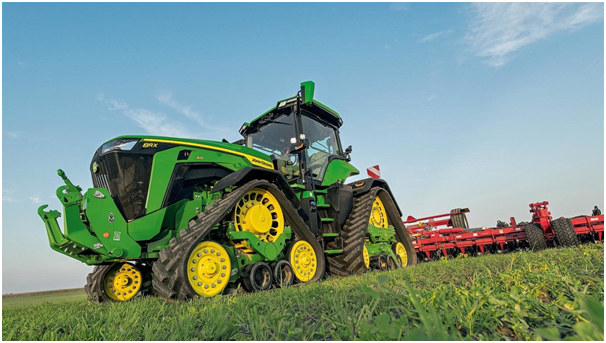To make it easier for buyers to choose a tractor, the French company Michelin partnered with John Deere to compare the effectiveness of different tire and track options. During a month, experts from the Ladoux research center took turns testing six configurations, on 8R wheel, 8RT two-track, and 8RX four-track tractors. The results of the test are given below.

The Background Info
The market of tires and tracks for tractors is getting oversaturated, so it becomes a real headache for a potential buyer when choosing a vehicle. By the way, if you have a tractor by John Deere, you should definitely try the sa5024 John Deere diagnostic tool. The comparative test by Michelin focused on several criteria:
- tractive effort;
- fuel consumption in the field and on the road;
- soil compaction;
- comfort, etc.
They brought together six configurations: an 8R 410 with 710 mm tires, single or twin, 900 mm, single, all of VF type, an 8RT 410 chaser, and an 8RX 410 four-track model. The last option, equipped with four independent Camso axles, wins most of the criteria. While maintaining a 5% slip rate, it has indeed a tractive effort 11% better than that of its 8RT two-tracked chase counterpart.
More About the Tractive Effort and Fuel Consumption
By this criterion, the difference between tracks and tires is 25%. The tractive effort of the best-wheeled models ends where that of the tracks begins. Among the 8Rs fitted with Michelin Ultra Flex tires and VF technology, the best in this criterion is the rear pair in 710/75 R42, which is 14% more effective than the unpaired one or the one equipped with wide tires in 900/60 R42. The contribution of the tire width is insignificant in this criterion.

During this tractive effort test, the teams also checked the fuel consumption. The differences between various configurations remain low and increase always in favor of the tracked models. Overall, the tracks are still recommended in extreme conditions as they allow a greater working width, associated with productivity. Increasing the working width of the attachment is actually smarter than working faster, according to John Deere. A four-track 8RX with a 12 m harrow has a 63% higher productivity than a wheeled 8R, while an average consumption rate is reduced by 13.5%.
On the other hand, the wheeled 8R at 50 km/h consumes just 53 l/100 km on the road, which is 38% less than the 8RT chaser, at 25 km/h. The latter also consumes 32% less than the 8RX with four tracks, which, with 96 l/100 km, must transfer its greater weight and its more complex mechanics. By this criterion, the wheeled tractor also confirms its superiority by proving to be more comfortable than its tracked counterparts.
In Conclusion
This is only a small review aiming to help you figure out the differences between tired and tracked models. We recommend you primarily focus on the company’s needs and select the equipment that meets most of the requirements.






